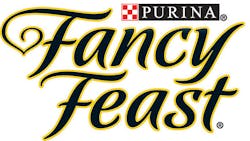Nestle Says Forced Labor Has 'No Place in Our Supply Chain'
ZURICH - Swiss food giant Nestle on Friday rejected allegations that it had knowingly allowed its Fancy Feast cat food to contain fish from a Thai supplier suspected of using slave labor.
"Forced labor has no place in our supply chain," the company told AFP in an email.
On Thursday, pet food buyers filed a class action lawsuit in U.S. federal court in Los Angeles seeking to represent all California consumers of Fancy Feast, claiming they would not have purchased the product had they known it had ties to slave labor.
The lawsuit said that Nestle works with Thai Union Frozen Products PCL to import more than 28 million pounds (13 million kilogrames) of seafood-based pet food for top brands sold in the United States, and it alleged that some of the ingredients in those products came from slave labor.
Men and boys, often trafficked from Myanmar and Cambodia, are sold to fishing boat captains who need crews aboard their ship, the complaint said, alleging that many were working 20-hour shifts with little or no pay and facing beatings or even death if the work is deemed unsatisfactory.
The Swiss food giant countered that it required "all of our suppliers to respect human rights and to comply with all applicable labour laws."
The company acknowledged, however, that enforcing its strict code of conduct throughout the complex, multi-layered supply-chain in the Thai seafood industry that supplies some ingredients for its products was a challenge.
"The elimination of forced labor in our seafood supply chain is a shared responsibility, and we are committed to working with global and local stakeholders to tackle this serious and complex issue," Nestle said.
It said that for the past year it had been working with the independent supply chain consultancy Achilles to try to get a better overview of the different levels in the chain.
And Nestle also said it had partnered with the non-governmental organization Verite, which was collecting information from fishing vessels, mills and farms in Thailand and from ports across Southeast Asia "to identify where and why forced labor and human rights abuses may be taking place."
The company vowed to publish the key findings of the study and present a clear plan of action by the end of the year.
Copyright Agence France-Presse, 2015
About the Author
Agence France-Presse
Copyright Agence France-Presse, 2002-2025. AFP text, photos, graphics and logos shall not be reproduced, published, broadcast, rewritten for broadcast or publication or redistributed directly or indirectly in any medium. AFP shall not be held liable for any delays, inaccuracies, errors or omissions in any AFP content, or for any actions taken in consequence.
